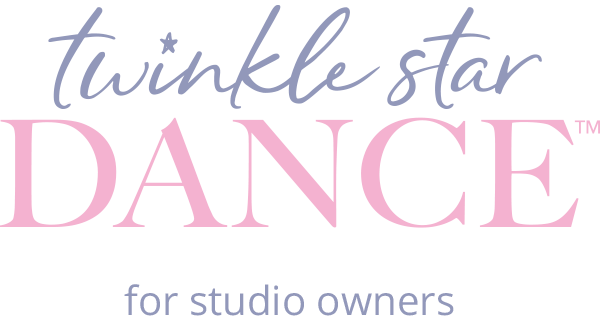Social connections formed through dance classes profoundly impact children's well-being across multiple dimensions. Dance creates a unique environment where children develop bonds that contribute to their emotional and social development in several key ways.
Emotional Well-Being Benefits
Dance classes foster emotional well-being by providing children with a supportive community. Research shows that the social bonds formed through dance significantly improve overall well-being, with studies demonstrating that even a 5-week online dance program can lead to measurable improvements in adolescents' well-being and hope for the future. These improvements stem directly from the stronger social connectedness that dance facilitates.
The social connections in dance classes create a judgment-free, inclusive environment where children feel safe to express themselves. This supportive atmosphere helps reduce stress and anxiety while promoting positive emotions. The camaraderie and mutual encouragement found in dance classes help children build a social support network that mitigates stress and anxiety.
Social Skill Development
Dance classes uniquely develop several social skills that enhance children's well-being:
**Enhanced Communication Skills**: Children learn both verbal and non-verbal communication through dance, improving their ability to express themselves and understand others. They develop the ability to read emotions through facial expressions and body movements, skills that extend beyond the studio.
**Trust and Cooperation**: When children rely on each other to perform lifts, synchronize movements, or complete routines, they build trust and understanding that strengthens their bonds. This collaborative atmosphere teaches children to work together harmoniously toward common goals.
**Empathy and Inclusion**: Dance teaches children empathy and understanding as they learn that not everyone learns the same way or comes from the same background. This connection with others on an emotional level encourages inclusion and acceptance of differences.
Long-Term Impact
The social connections formed in dance classes often create lasting friendships that support children throughout their development. These shared experiences and challenges of learning dance routines create strong connections that can last a lifetime, providing children with a sense of belonging that contributes to their long-term emotional resilience.
Research indicates that increases in social bonding through dance significantly predict increases in well-being, demonstrating that the emotional benefits of group dance stem directly from having stronger social connectedness.
Sources
[1] How Dance Develops Social Emotional Skills In Kids https://rugcutterz.com/how-dance-develops-social-emotional-skills-in-kids/
[2] Benefits of an online group dance program for adolescents' social ... https://pmc.ncbi.nlm.nih.gov/articles/PMC11618708/
[3] How Dance Classes Develop Social Skills in Children https://www.rocdance.net/post/dance-classes-develop-social-skills-in-children
[4] How Dancing Can Help Improve Social Skills in Young Children https://www.performingdancearts.ca/dancing-can-help-improve-young-children-s-social-skills/
[5] Dance Classes Can Improve Your Child's Social Skills https://danceclassicstn.com/dance-classes-can-improve-your-childs-social-skills/
[6] Reducing Stress in Children Through Dance: Discover Well-Being https://www.adoredance.london/post/dance-as-a-tool-for-stress-relief-in-children-encouraging-mindfulness-and-relaxation
[7] Dance and Social Development in Preschool Children https://www.danceacademyusa.com/dau-blog/dance-and-social-development-in-preschool-children
[8] How Dance Classes Support Emotional Well-Being https://www.americaskidsinmotion.com/dance-as-therapy-how-dance-classes-support-emotional-well-being/
[9] How Dance Enhances Children's Mental Health and Well-Being http://www.dancedynamicslv.com/dd-blog/dance-childrens-mental-health-well-being
[10] Dancing may be better than other exercise for improving mental health https://www.sydney.edu.au/news-opinion/news/2024/02/12/dancing-may-be-better-than-other-exercise-for-improving-mental-h.html
[11] Dancing towards wellbeing: a scoping review of dance interventions ... https://www.tandfonline.com/doi/full/10.1080/1750984X.2025.2471759
[12] Emotional and Social Benefits of Dance for Kids https://kewschoolofdance.com/emotional-and-social-benefits-of-dance-for-kids/
[13] The Benefits of Dance for Kids and Teens - Jensen Performing Arts https://jpadance.com/2024/10/21/the-positive-effects-of-dance-lessons-for-kids-and-teens-at-jensen-performing-arts-in-milpitas-ca/
[14] Social dance and movement for mental health: A narrative review https://onlinelibrary.wiley.com/doi/10.1002/mhs2.62
[15] 10 Benefits of Kids Dance Classes: Unlocking Physical, Social, and ... https://www.principalarts.com/10-benefits-of-kids-dance-classes-unlocking-physical-social-and-emotional-growth/
[16] Helping Children Develop Social Skills with Dance Classes https://dkdancepro.com/dance/helping-children-develop-social-skills-with-dance-classes/
[17] Using Dance to Promote SEL Skills - Edutopia https://www.edutopia.org/article/using-dance-promote-sel-skills/
[18] How to Teach Social Skills in Dance Class https://shannondoolingdances.com/2022/10/14/how-to-teach-social-skills-in-dance-class/
[19] 10 Benefits of Inclusive Dance for Children of All Abilities https://www.moveinclusivedance.com/blog/benefits-of-inclusive-dance-for-children
[20] The Physiological and Psychological Benefits of Dance and its ... https://pmc.ncbi.nlm.nih.gov/articles/PMC9234256/
